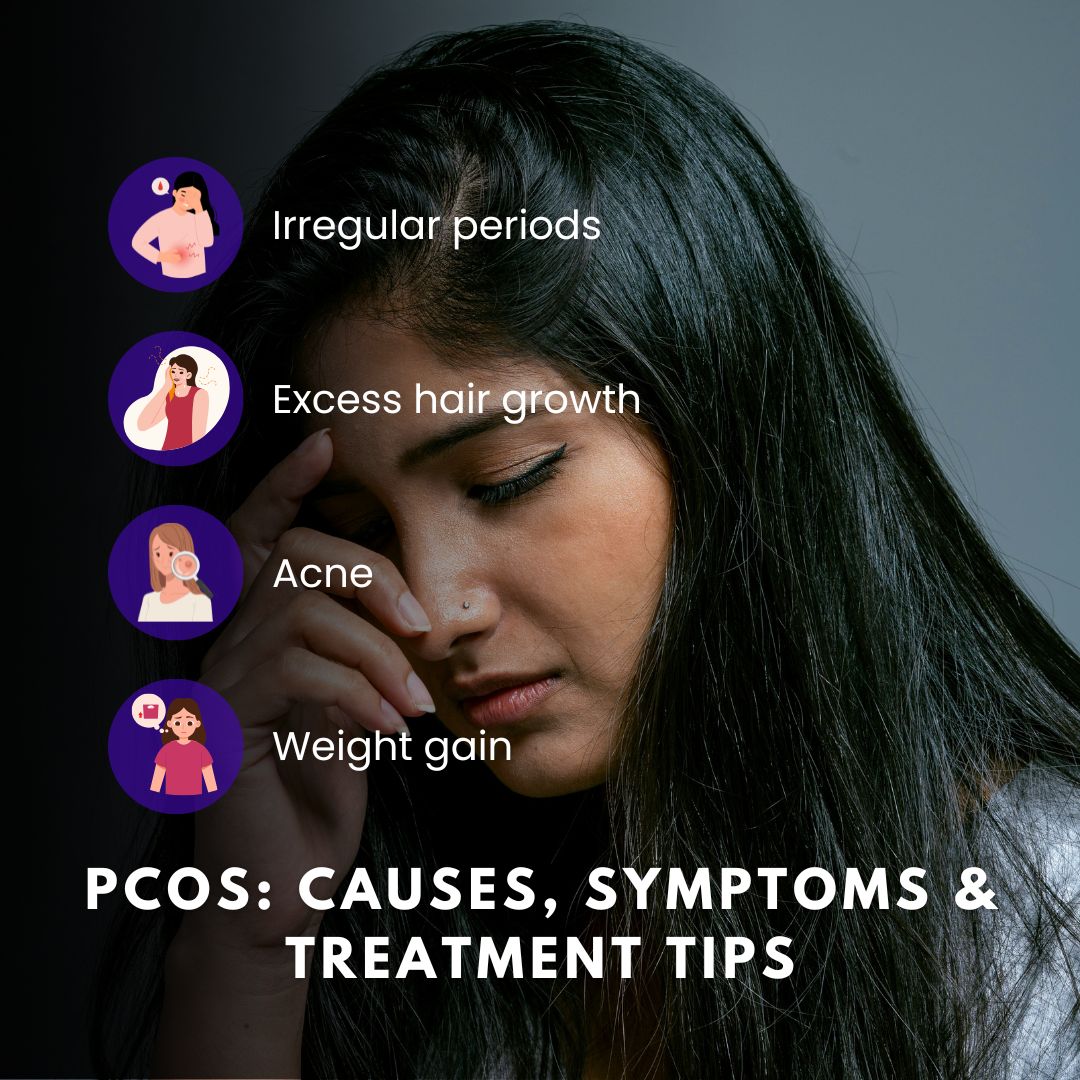Nutristyle By Chahat


PCOS (Polycystic ovarian syndrome) is widely diagnosed worldwide, and in India, data shows that it affects 3.7% to 22.5% of women. But still, a lot of undiagnosed cases are there.
What is PCOS?
In very simple language, PCOS is a condition in which a woman faces many hormonal imbalances which not only affect her physical health but also her mental health. As the name suggests, polycystic ovaries majorly affect your ovarian health by affecting your ovulation, making you produce more male hormones and also affecting your metabolism. Because of disturbed ovulation, it’s also the leading cause of infertility in women.
Symptoms of PCOS?
There are multiple symptoms of PCOS, but the three major 3 symptoms that help a Doctor to diagnose PCOS are:-
When to see the Doctor
When you have any of the three major symptoms, then it’s time for you to visit a healthcare professional, as they can help you with the diagnosis as well as plan a suitable treatment to balance your hormones.
Diet Plan for PCOS
Diet plays a very major role in balancing your hormonal levels. A diet which contains low GI carbohydrates, good quality protein, moderate amount of good fats, right portions of vitamins, minerals and superfoods to lower inflammation is not only helps you to manage your symptoms but also prevents you from developing issues like fatty liver, high cholesterol levels, obesity or type 2 diabetes in PCOS.
The right Diet will help you improve insulin sensitivity, help you to balance estrogen in the body, reduce inflammation in the body and also help reduce excess male hormones. The diet that you should opt for should fulfil all your nutritional needs as you need to follow it for the long term. Crash diet or any diet which has too many restrictions should be avoided in PCOS as it can worsen your hormonal levels in the long term.
Ideal Diet Plan for PCOS
Option 1 – Coconut oil with water
Add 1 tbsp of Extra virgin coconut oil in 1 cup of warm water, mix it and have it.
Option 2 – Fenugreek seeds water
Soak 1 tbsp Fenugreek seeds in 1 glass of water overnight, and in the morning boil this for 5 minutes, then strain it and have it.
Option 3 – 1 Boiled Amla + Brazil Nut – 1
Option 1 – Oats, besan Palak Chilla + Amla chutney
Option 2 – Makhana smoothie – 1 glass
Prepare a smoothie with makhana, almond milk, a scoop of protein powder, a banana and a seed mix.
Option 3 – Red lentil Chilla + Sauteed Broccoli + Amla chutney
Option 1 – Oats, moong dal Khichdi with Carrot, beetroot salad
Option 2 – Chickpeas sautéed with vegetables + Ragi Chapati + Salad
Option 3 – Rice sautéed with vegetables + Egg Bhurji + Grated raw papaya salad
Option 1 – Sattu – 1 glass + Apple – 1
Option 2 – Avocado Toast + Boiled Egg
Option 3 – Banana + Flaxseed – 1 tsp + Pumpkin seed – 1 tsp
Option 1 – Lemon coriander soup – 1 medium bowl + Grilled tofu + Rice sautéed with vegetables
Option 2 – Amaranth Porridge (Add choice of nuts in it + Use coconut milk for porridge)
Option 3 – Sambhar + Spinach rava Idli
Option 1 – Chamomile Tea – 1 Cup
Option 2 – Sesame seeds – 1 tsp
Option 3 – Lavender tea – 1 Cup
Tips to Reverse your PCOS
Conclusion
All the symptoms of PCOS can really affect your mental and physical health. Sometimes it feels impossible to reverse it, but what you need to know is that thousands of women have worked on it and are now living a balanced life. Your hormonal health can affect you in many ways, but with the guidance from health experts, Nutritionists, consistency, avoiding what is making it worse, by regular monitoring, you can manage it for a long lifespan.
An approach that not only works on symptoms but also takes care of the root cause is the ideal approach to reverse your PCOS. By reversing it and managing it, you can lead a healthy, long life.
Read also: 5 Best Superfoods for PCOS